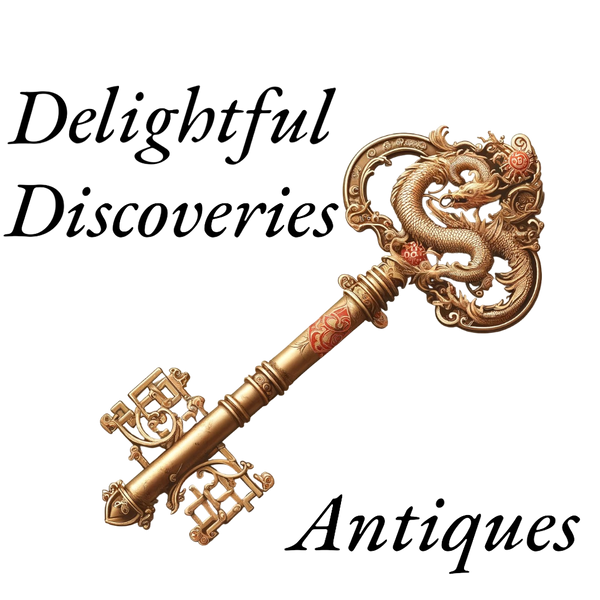
The Best Places to Find Antiques (Other than Here!) Part 1
Share
Image Source: Unsplash
I firmly believe in providing excellent customer service. To that end, I acknowledge that Delightful Discoveries by SnS is not always going to have what a customer is looking for. So, I will share some of the knowledge I've gained collecting and selling antiques to help you find exactly what you are looking for.
As an antique store owner, it is important of to have some "rare" finds in your inventory. Customers come to your store expecting to find unique items that they can't get anywhere else or collectibles that are just "hard-to-find". To keep the customers satisfied, you need to know the best places to search for those rare gems. From flea markets and estate sales to online auctions and thrift stores, there are plenty of places to find antiques and collectible, "rare" and otherwise. Continue reading to learn a little "inside information" that may help you in your search.
What makes an item “rare”?
There's a lot of gray area when it comes to the definition of rare. At the extreme end of the spectrum, a “rare” antique would be at least 100 years old and have only one example in existence. In that case, the piece would not only be rare, but would actually be a “one-of-a-kind”, and if highly sought after, it would also be extremely expensive. In the case of collectibles, there could be an item, such as a specific brand and style of teapot that was mass produced in the 1940’s. But, when you search for that particular teapot now, you can only find about 10 examples online, making it a “rare” find. This example of “rare” is the more realistic definition that applies to most vintage and antique shops. However, since every antique store is different and the definition of rare varies from person to person, you'll have to use your best judgment when assessing the rarity of your delightful discoveries.
Flea markets
Flea markets can be a treasure trove of inexpensive antiques. Many flea markets don't charge admission. However, there are some nicer flea markets, most often the indoor variety, that charge an admission fee to cover the cost of the venue. In addition to the potential admission fee, you can expect to pay between $5 and $100 for the goods, depending on the type of items you are looking for. You may have to pay for parking, too. To make the most of your visit, arrive early and scout out the best spots. Do a once-around to get a feel of the type of items available. And be sure to bring a notepad or use your phone to document the tables that you find interesting. Although, some tables may have supplies to wrap or secure your purchases, be prepared by bringing your own packing material if you plan to buy fragile items. Also, be mindful of how you will get your purchases back to the car. Most vendors who sell heavier or fragile items are prepared to help their customers manage their purchases, but it is always better to be prepared.
Estate sales
Estate sales are a great way to find one-of-a-kind items. Some local governments have restrictions on the type of items that can be sold, so you may not be able to buy animal by-products, such as ivory, or firearms. Before making the trip to an estate sale, do some research beforehand and try to get as much information as possible about the sale. For privately managed estate sales, you may be able to call the owner first to find out the price range of the items. If it is a multi-day sale, this price information may help you decide if you will visit that sale on Day 1 or if you should wait until Day 2, when there is normally a discount. If the sale is managed by a company, there is a good chance the only way you will find out the prices is by going to the sale. Many private sales are cash only, even in the era of Cash App and Venmo, for some, cash is still king. Most estate sales, however, accept cash, credit/debit cards (with a fee), and even personal checks up to a specified dollar amount. Another good tip for sourcing inventory from estate sales is to keep in mind that “All Sales Are Final”. Be sure to inspect any item that catches your eye carefully. You may find damage that the sale manager didn’t notice. Then, you can decide whether the damage is minor enough that you can use it to negotiate a low prices or you can avoid making an investment in something that you won’t be able to resell.
I've found that flea markets and estate sales are the best places to find the pieces that interest me most. But they are definitely not the only places. I'll share some information about other sources for collectibles and antiques in Part 2.
If you just can't wait for Part 2 and need to know about antiques now, you may want to check out Antiques Detective. You can find it by visiting Abebooks.com.
Our goal is always customer satisfaction. If you are searching for more rustic and unique decor items, try the Antique Farm House.
